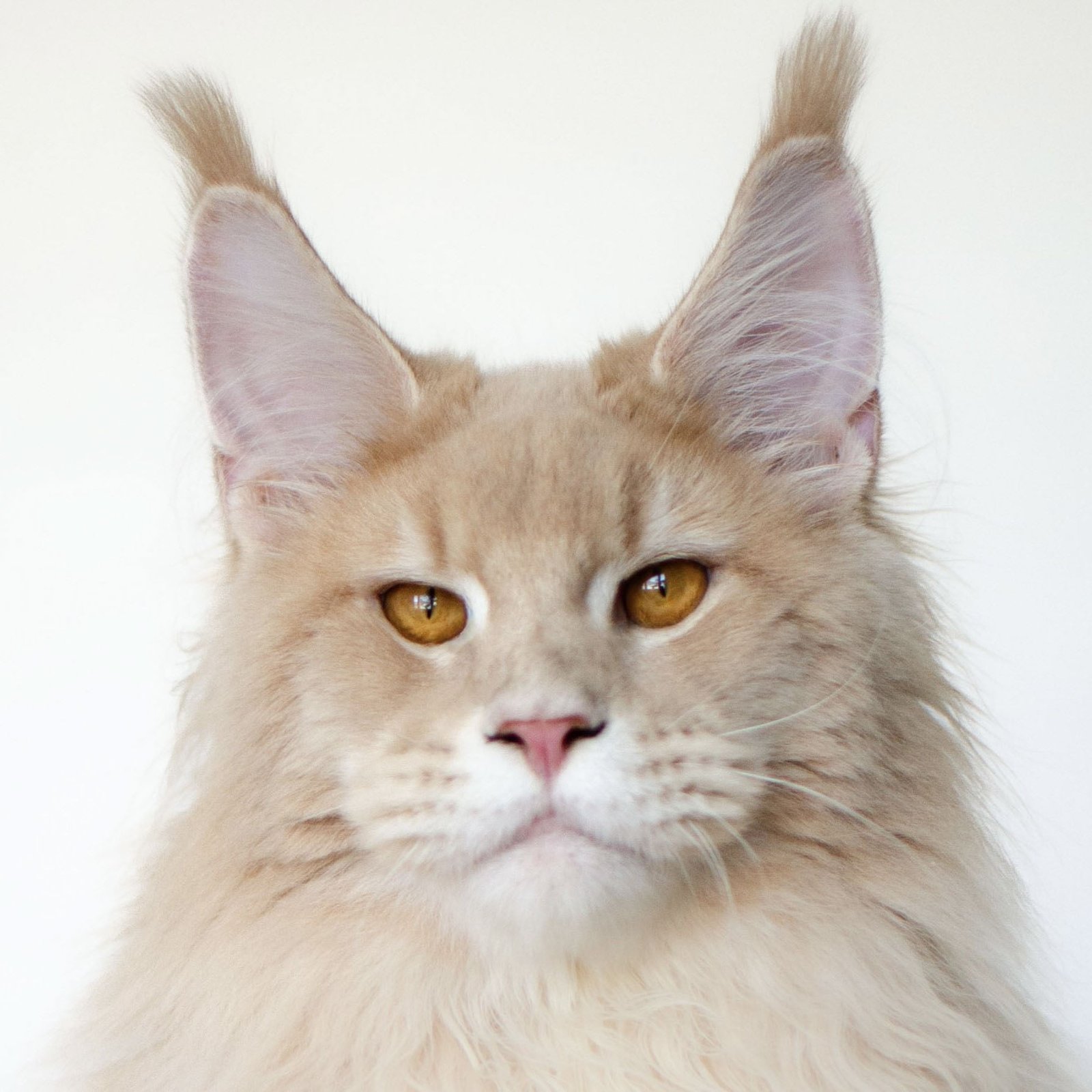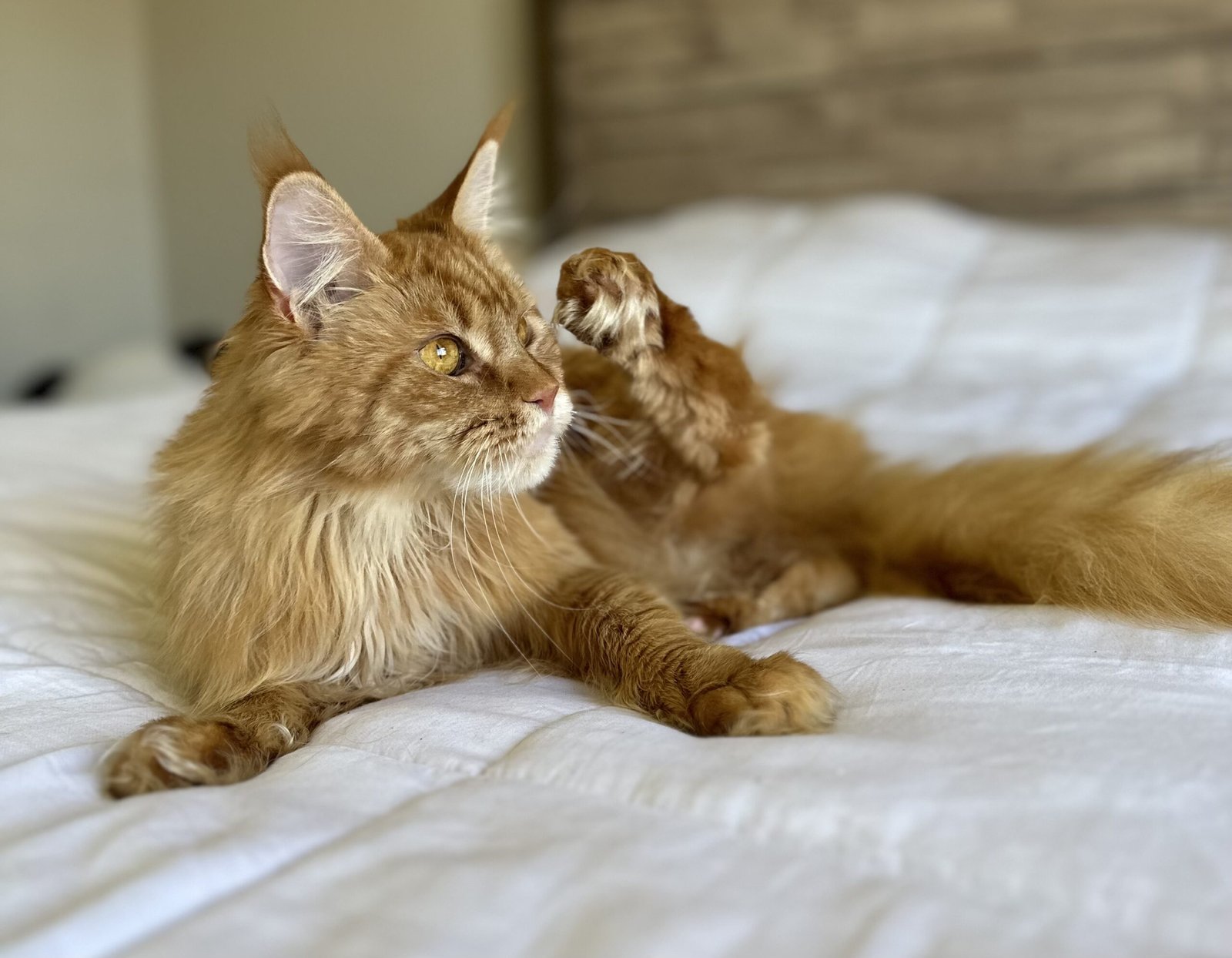When Are Blue Eyes Okay and When Are They Not?
The Maine Coon cat standard as set forth by both TICA and CFA includes a gorgeous range of eye colors: green, gold, green-gold, or copper. Blue eyes and odd eyes – where one eye is blue and one is green or gold – are specifically allowed only in all white cats, or bicolor cats that have both white and another color. Typically bicolor Maine Coon cats will only have naturally blue eyes if the hair surrounding their eye is also white – which means that most bicolors either do not have blue eyes or will just occasionally have odd eyes where one is blue and one is green.
Recently some Maine Coon breeders have been popping up with a new “Dominant Blue Eyed” or “DBE” gene, where Maine Coon cats of all colors will have blue eyes, not just the white and bicolors allowed per the breed standard. There are big debates as to whether these cats can actually be considered purebred but we won’t get into that here.
To be considered a dominant gene, any cat carrying even one copy of the blue eye gene would show visually blue eyes. Because I have seen an incredible amount of cats being sold as dominant blue eye “carriers” without having blue eyes themselves, and many kittens coming from parents with non blue eyes, the use of the word “dominant” when breeders describe this trait highlights a lack genetic of education from these breeders.
So why are DBEs a bad thing to have in the breed?
The DBE mutation allows a cat with much less or even no white coloring to have blue eyes. From both my own research and the experiences of other breeders, many of these mutated cats tend to be deaf, much like many of the all white cats with blue eyes. However, specifically with this mutation, there is also a high frequency of varying grades of telecanthus meaning that the eyes are spaced much further apart than normal. Telecanthus is a big giveaway for the feline version of Waardenburg Syndrome, which MANY of these DBE mutated cats unfortunately have, whether or not their breeders seem aware.
Waardenburg syndrome is much more than just oddly spaced eyes and deformed nasal bridges. It can cause menal slowness, lower joint deformities (look for bent front legs, especially at the ankles), deafness, digestive issues, and occasionally cleft lips, in addition to many other issues. While it is not widely studied in cats, the symptoms seem to mirror those in humans with the syndrome. Here is a page listing all of the common human symptoms that have also been witnessed in cats.
Attached here is a very thorough research study performed on feline Waardenburg syndrome in June of 2024. For any science nerds like myself, it is definitely worth a read!
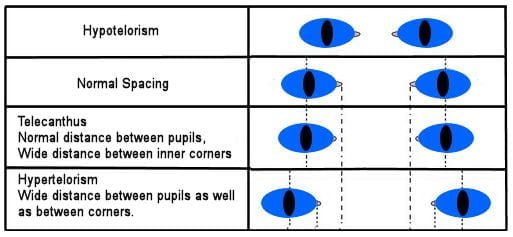
In my searches for kittens, I have come across a shocking number of these DBE cats with very obvious Waardenburg syndrome listed for sale as healthy cats meant for breeding, even multiple local to me. It is very obvious which cats are affected by it and it can appear from seemingly normal cats with DBEs as well. These cats should NOT be bred.
Many of these breeders even price the DBE kittens much higher, quoting them as designer kittens, despite not even doing additional testing (ALL blue eyed cats should be BAER tested at a minimum). Some of you will have to forgive me for saying this – they are the Maine Coon equivalent of a “fluffy” french bulldog. Here are some examples (breeder’s names/logos cropped out for privacy).
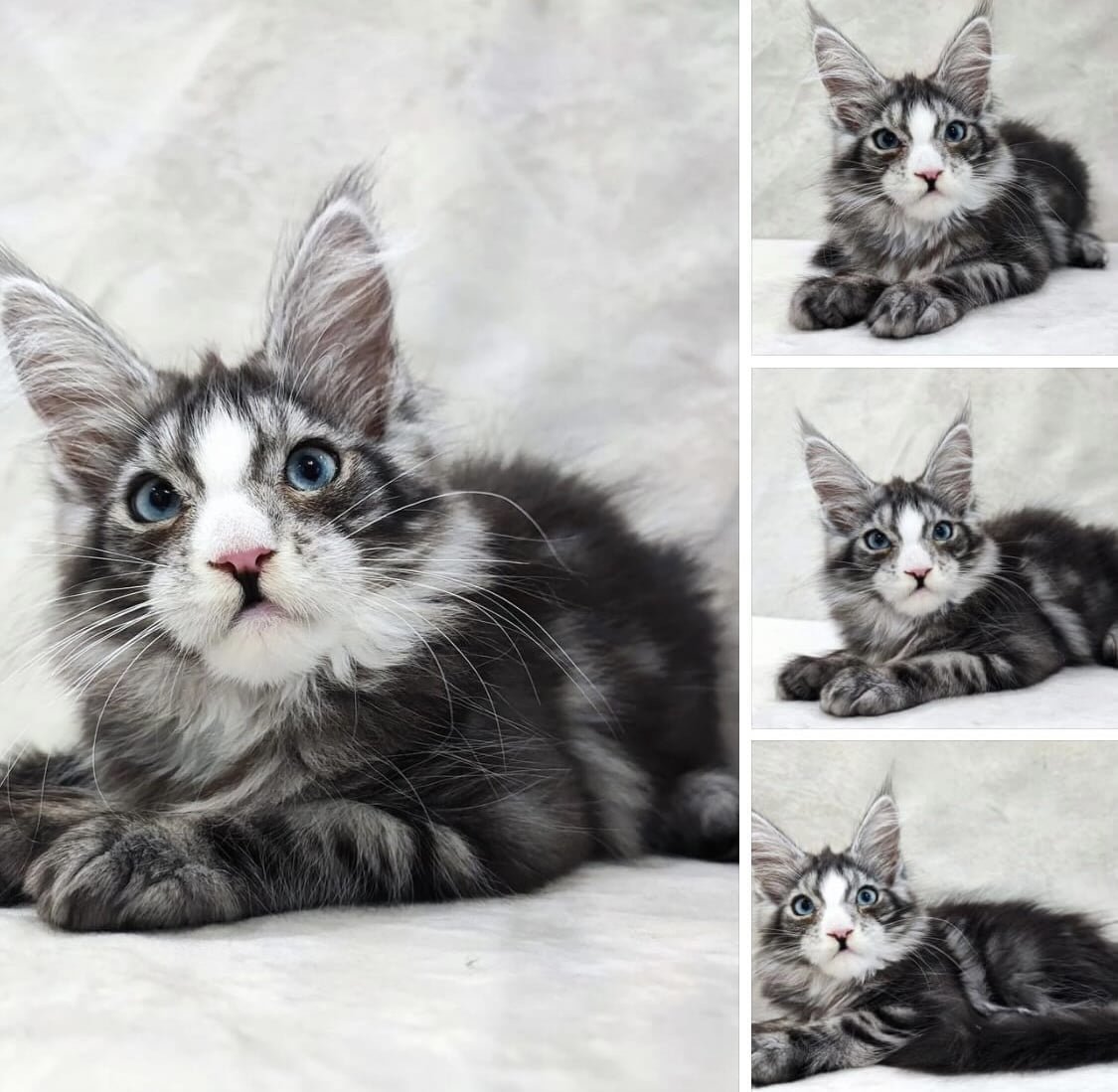
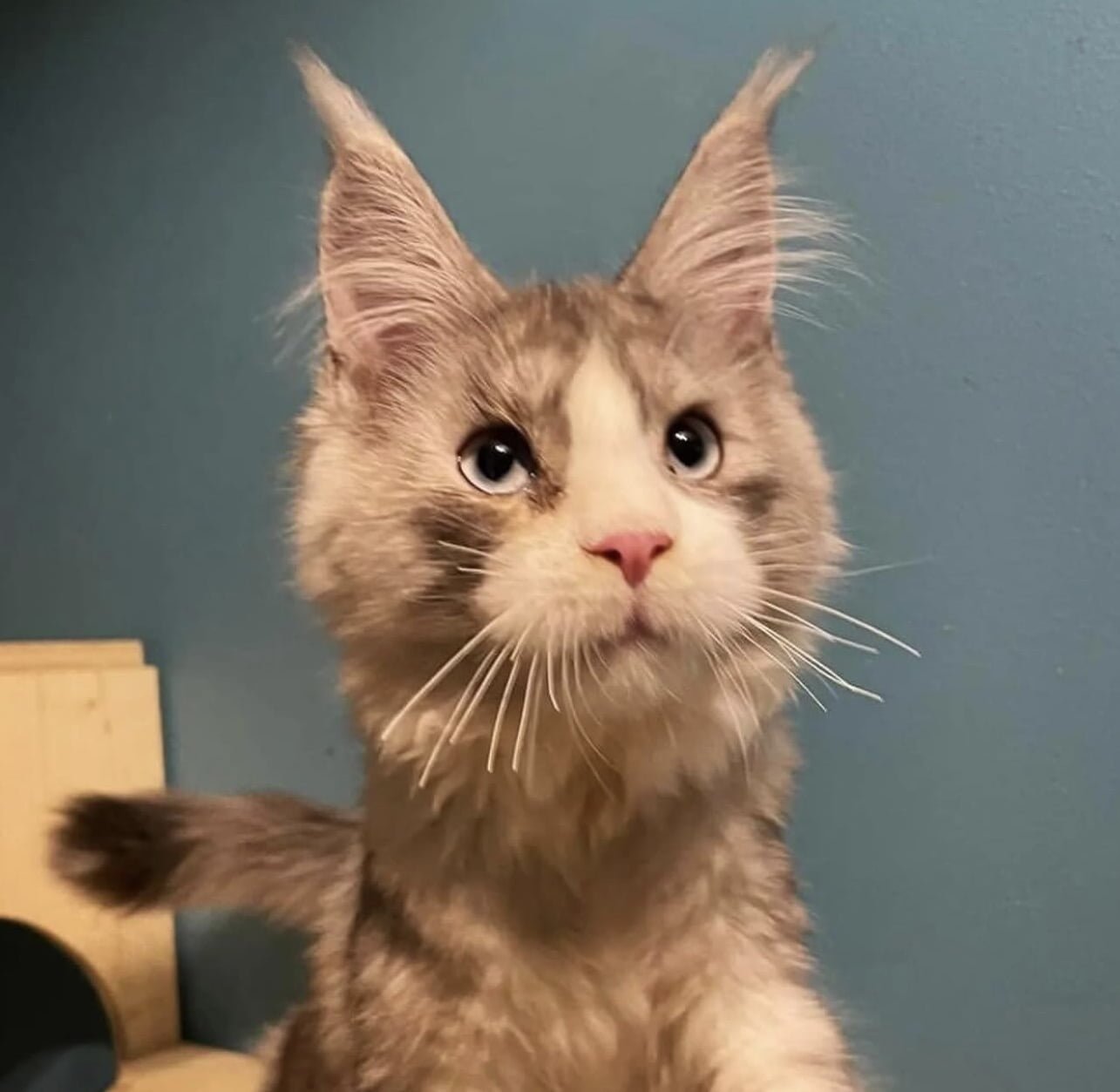
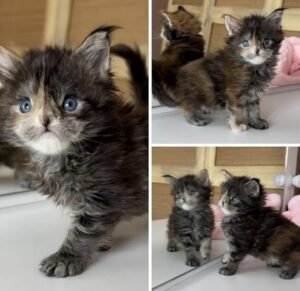
The entire purpose behind breeding Maine Coons is for preservation of the breed – keeping these gorgeous, regal cats to standard while working tirelessly to improve their overall health and wellness. As it stands, a minimum of 37% of the existing Maine Coon cats have hip dysplasia, and there are still plenty of genetic diseases we are working to eradicate from the breed. Even if the DBE gene did not cause any serious side effects for the poor cats, it is not the time to be introducing novel traits to the breed, it is the time to be working to help them.
So, what can you do to help with this issue?
Don’t support breeders who breed blue eyed maine coons. Period. It is very obvious that these people are only in it for the money (otherwise why price the blue eyed mutation higher?) and do not care about the breed standard or preservation of the breed.
